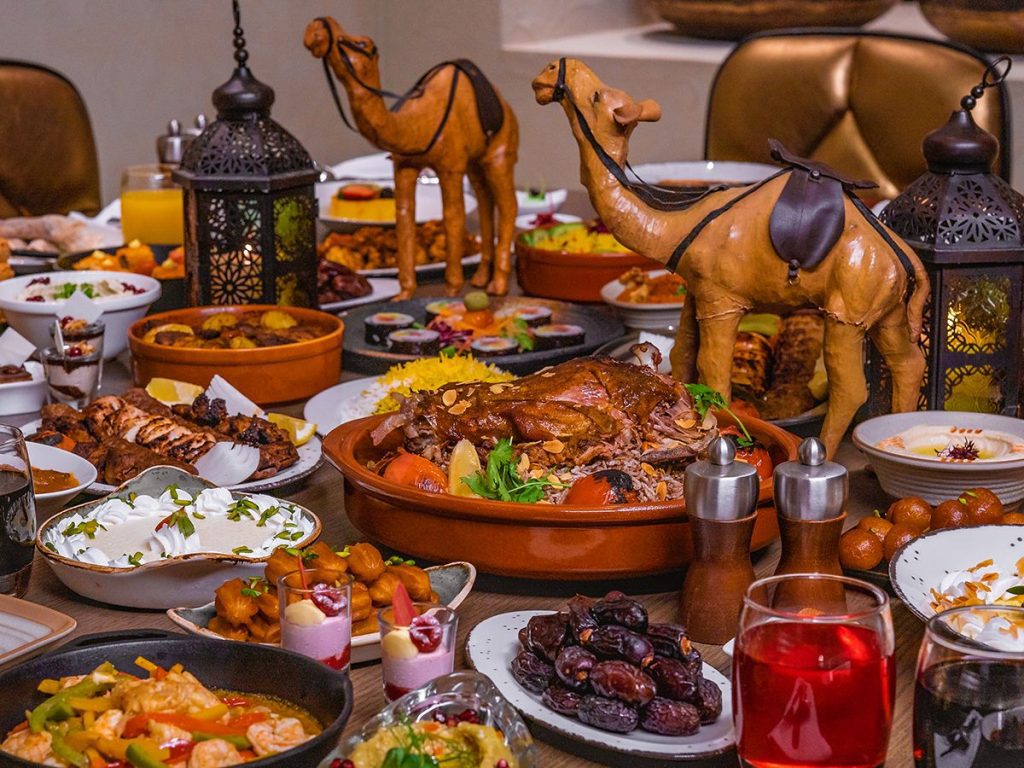- Private car and driver in Delhi / India
- +91-8447445445
- info@discoverindiabycar.com sugar.ankit@yahoo.com
 +91-9818434712
+91-9818434712
Ramzan Id/Eid-ul-Fitar

Eid al-Fitr, often referred to as the Festival of Sweets or the Holiday of Breaking the Fast, is the earlier of the two official holidays recognised by Muslims. Muslims all around the world celebrate the holy day because it marks the end of the Ramadan fast, which is kept from dawn to sunset for one whole month. It takes place on the first day of Shawwal in the Islamic calendar, which is not always the same day as in the Gregorian calendar because the beginning of each lunar Hijri month is determined by the moment the new moon is observed by local religious authorities.
The event has many different names in many different languages and countries around the world. Another term for the holiday is Small Eid or just Eid.
History
According to Muslim tradition, the Islamic prophet Muhammad is credited with creating Eid al-Fitr. According to certain accounts, these festivals are claimed to have begun in Medina after Muhammad moved there from Mecca. Anas, a well-known companion of the Islamic prophet Muhammad, said that he saw people enjoying two specific days during which they entertained themselves with fun and pleasure when the prophet arrived in Medina. Then Muhammad noted that two holidays—Eid al-Fitr and Eid al-Adha—had been predetermined by God.
General customs
On the night of the first crescent moon sighting, Eid al-Fitr often begins about sunset. If the moon cannot be seen directly after the 29th day of the previous lunar month, the holiday is observed the following day (either due to clouds blocking the. One to three days are set aside for Eid al-Fitr celebrations, depending on the country. It is forbidden to fast on the Day of Eid, and a specific prayer is reserved for this day. Giving money to the poor and needy is a compulsory act of charity before saying the “Eid” prayer.
Eidgah and the eid prayer
The congregation prays for Eid in a public space like a field, community centre, or mosque. There is no call to prayer for this Eid prayer, which merely consists of two units of prayer with varying numbers of Takbirs and other components depending on the school of Islam practised. After the speech and the Eid prayer, a plea is made to God for forgiveness, mercy, peace, and blessings for all living things worldwide. Muslims are also given instructions in the sermon on how to conduct Eid customs including the zakat.In contrast to Friday, when prayer is offered first, Eid’s speech follows the Eid prayer. Some imams hold that attending the Eid speech is not required. Muslims visit their family, friends, and acquaintances after prayers or host large gatherings in their homes, community centres, or rented spaces.

Which Islamic holiday is the most important?
Festival of Sacrifice, also known as Eid-ul-Adha: This important Muslim holiday signifies the conclusion of the Hajj, or trip, to Mecca, which Muslims are urged to perform at least once in their lifetimes. The Hajj is one of Islam’s five pillars.
In India, why is Eid al-Fitr a holiday?
Muslims thank Allah on this day for providing them the will, stamina, and endurance to observe the fast and follow his instructions during Ramadan. Muslims observe Eid as a time to donate alms to the poor and to gather with family and friends to mark the conclusion of a month filled with blessings and joy.
In India, Eid al-Fitr is a national holiday. In India, Eid is a recognised holiday. When the new moon is seen on Chand Raat, the festival officially starts.

Which state has the largest Eid celebration?
India’s capital, Delhi, is well-known for its Eid celebrations. Devotees continue to fill the entire Old Delhi neighbourhood, which is also the location of the well-known Jama Mosque. On the day of Eid, it is amazing to see thousands of Muslim males offering the “namaz” in the early morning hours.
In what manner is Eid al-Fitr observed in India?
Eid-ul-Fitr is rapidly approaching as the holy month of Ramadan draws to a close. It is a season of getting together and exchanging gifts with loved ones. Also, it’s a chance to indulge in exquisite sevaiyaan and biryani.








